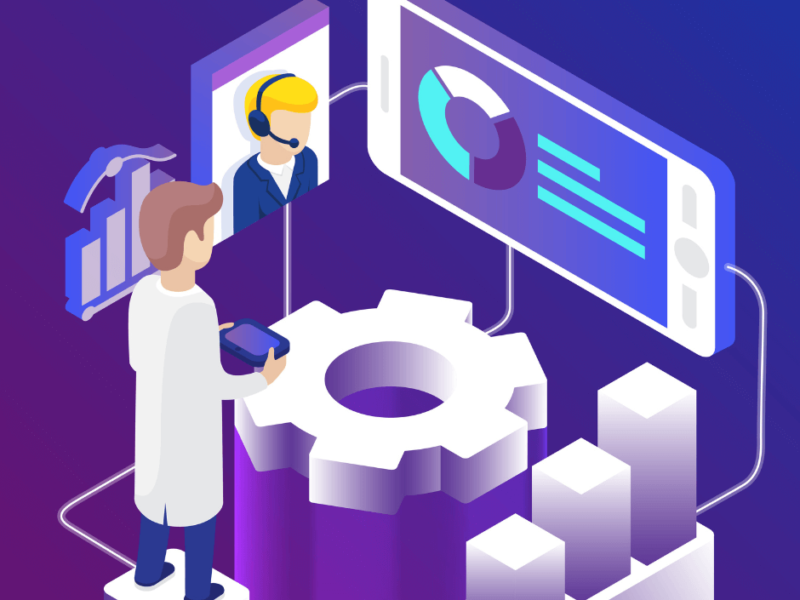How Quantum Computing Work? Quantum computing is revolutionizing the way we process information. Unlike classical computers that use bits (0 or 1), quantum computers use qubits.
They can represent many states at once. This ability can solve complex problems faster than ever. It opens up a world of possibilities.
Quantum mechanics is vital to quantum computing with its superposition and entanglement. These unique properties let qubits do calculations that traditional computers can’t. Imagine cracking codes, optimizing systems, or simulating molecules. Do it all in a fraction of the time.
This article will explain how quantum computing works. We’ll explore its foundations and discuss real-world applications. This guide will make quantum computing simple to understand. It’s for tech enthusiasts and the curious. Don’t miss our affiliate link to explore quantum tools: Quantum Software Discounts on AppSumo.
What is quantum computing?
Quantum computing is a new way to solve problems. Classical computers need help to do so efficiently. Quantum computing uses the principles of quantum mechanics. It is a branch of physics that studies atomic and subatomic particles.
How Does Quantum Computing Differ From Classical Computing?
Classical computers rely on bits representing information as either 0 or 1. These binary states are how traditional machines process and store data. In contrast, quantum computers use qubits. A phenomenon known as superposition allows them to exist in multiple states simultaneously.
For example, a single qubit can represent both 0 and 1 at the same time. This creates endless possibilities for data processing. Combined with other qubits, it lets quantum computers evaluate many solutions simultaneously.
Also, qubits can interact through entanglement. This is a unique quantum property. It lets particles stay connected even when separated by vast distances. This interconnectedness allows quantum computers to calculate faster than classical systems.
Critical Concepts in Quantum Computing
- Superposition: This allows qubits to be in multiple states simultaneously, drastically increasing computational capacity.
- Entanglement: Entangled qubits share information instantaneously, enabling faster data processing.
- Quantum Interference: By adjusting probabilities, quantum algorithms use interference to enhance correct results and reduce errors.
Real-Life Examples of Quantum Computing
Quantum computing is already making an impact across various industries. Here are some examples:
- Cryptography: Quantum algorithms, such as Shor’s algorithm, can break traditional encryption methods, creating new security challenges and opportunities.
- Drug Discovery: Simulating molecular structures using quantum systems accelerates the discovery of new medicines.
- Supply Chain Optimization: Quantum systems handle complex logistical problems, like route optimization, much faster than classical algorithms.
Benefits of Quantum Computing
- Speed: Tasks that take years on a classical computer could be solved in minutes.
- Efficiency: Reduces computational bottlenecks in data-heavy fields like AI and machine learning.
- Innovation opens doors to solving problems previously deemed impossible.
Limitations and challenges
While quantum computing holds immense potential, it’s not without challenges.
- Cost: Building and maintaining quantum systems is expensive.
- Fragility: Qubits are highly sensitive to environmental disturbances, which can lead to errors.
- Scalability: Current quantum computers still need more potent for widespread commercial use.
Explore quantum tools and software.
To learn more about how quantum computing can transform industries, check out our affiliate link: Explore Quantum Computing Software Deals.
Sources
- IBM Quantum Computing Resources (IBM Research)
- Google Quantum AI: Google Research
The core principles of quantum mechanics in computing
Quantum computing is based on the strange rules of quantum mechanics. They govern the behavior of particles at tiny, microscopic scales. Though abstract, these principles are the foundation of quantum computing and how quantum computing works. They let quantum computers process information in ways that classical machines can’t.
Superposition: Beyond Binary
In classical computing, bits are either a 0 or a 1, like a light switch on or off. But, in quantum computing, a qubit can exist in a superposition, meaning it can be both 0 and 1 simultaneously. This isn’t magic it’s quantum physics.
Imagine flipping a coin. As it spins, it is neither heads nor tails—it is both until it lands. This is like how superposition works. A quantum computer doesn’t calculate like a classical computer. It doesn’t check each possibility in order. Instead, it evaluates many opportunities at once, exponentially increasing computational power.
Entanglement: Linking the Unlinkable.
Entanglement is a crucial principle of quantum mechanics. It is critical to quantum computing. When two qubits become entangled, one affects the other instantly, no matter the distance. This interconnectedness is unique to quantum systems. It enables faster, more efficient communication between qubits.
For example, entanglement is like a pair of synchronized dice. If you roll one and get a six, the other die will also show a six, even if they’re on opposite sides. This allows quantum computers to perform tasks with incredible coordination.
Quantum Interference: Refining Results
Quantum interference adjusts probabilities to amplify correct outcomes and reduce errors. Manipulating qubits can result in either constructive or destructive interference of their quantum states. This interference refines computations, improving the accuracy of results.
For example, consider a noise-canceling headphone. It works by creating sound waves that interfere with ambient noise, canceling it out. Similarly, quantum interference eliminates incorrect solutions, leaving only the most accurate ones.
Applications of These Principles
The principles of superposition, entanglement, and interference aren’t just theoretical—they’re actively transforming industries.
- Artificial intelligence: Quantum computers can process and analyze massive datasets faster, improving AI predictions and decision-making.
- Cryptography: Using quantum mechanics, quantum computers can break current encryption methods while creating unbreakable quantum encryption.
- Optimization Problems: Industries like logistics and finance benefit from quantum computers solving highly complex optimization challenges.
Challenges in Harnessing Quantum Principles
Despite their promise, these principles come with challenges:
- Decoherence: Qubits are sensitive to environmental factors, causing them to lose their quantum state.
- Error Rates: Maintaining stability in qubits requires advanced error correction methods.
- Complexity: Building algorithms that fully utilize quantum principles remains a technical hurdle.
Unlocking Quantum Potential
Quantum mechanics lets quantum computers calculate at unmatched speeds. However, they need a deep understanding of physics and engineering to succeed.
Explore Quantum Tools and Resources
Are you prepared to investigate quantum tools that utilize these principles? Check out exclusive software deals here: Quantum Computing Solutions.
Reference Sources
- Quantum Computing Explained (MIT Technology Review)
- Quantum Algorithms (IBM) Quantum
How Does Quantum Computing Work?
Quantum computing is a new technology. It works differently from the classical computers we use every day. Quantum computing can process vast amounts of data at once. It uses qubits, not binary bits, to do this. But how does this work?
The Building Blocks: Qubits
Bits, which can be either 0 or 1, represent data in classical computing. However, quantum computing employs qubits. These qubits can exist in superposition. They can represent 0, 1, or both at once. A classical computer does one calculation at a time. A quantum computer can do many calculations at once.
For example, consider searching for a single name in a phonebook. A classical computer would check each name one by one. A quantum computer can use its superposition to scan all names at once. This will speed up the process.
Quantum Gates and Circuits
Quantum computers operate using quantum gates, which manipulate qubits. These gates are like the logic gates in classical computing. However, they operate using quantum mechanics.
Some of the most common quantum gates include:
- Hadamard Gate: Creates superposition in a qubit.
- CNOT Gate: Facilitates entanglement between two qubits.
- Pauli Gates: Rotate qubits to manipulate their quantum state.
Quantum circuits, which execute algorithms, organize quantum gates. These circuits are the core mechanisms driving quantum computations.
Quantum Algorithms
Quantum computers use specialized algorithms designed to leverage their unique properties. Here are some examples:
- Shor’s Algorithm: Used for factoring large numbers, which has implications for cryptography.
- Grover’s Algorithm: Helps in searching unsorted data more efficiently than classical methods.
- Variational Quantum Eigensolver (VQE): Applied in quantum chemistry for simulating molecular structures.
These algorithms show the unmatched power of quantum computing. They can solve problems that classical systems cannot.
Error Correction in Quantum Computing
One of the challenges in quantum computing is error correction. Qubits are very sensitive to their environment. Minor disturbances can cause errors. To fix this, quantum computers use quantum error correction codes. They use many qubits to encode and correct errors in data.
For instance, a logical qubit may need many physical qubits for stability. This process increases computational reliability but also adds complexity.
Practical Applications of Quantum Computing
Quantum computing is already finding applications in various fields.
- Healthcare: Simulating protein structures to speed up drug discovery.
- Finance: Optimizing investment portfolios and managing risk.
- Climate Science: Modeling complex climate patterns to predict changes and design solutions.
These applications showcase quantum computing’s potential to solve real-world problems efficiently.
Overcoming Challenges
Despite its promise, quantum computing faces significant hurdles:
- Scalability: Building large-scale quantum systems remains a challenge.
- Fragility: Qubits are prone to decoherence, losing their state quickly.
- Cost: The technology required to maintain quantum systems is expensive and resource-intensive.
How to Stay Updated on Quantum Computing
For those eager to learn, many tools and resources await. Many companies are offering quantum software platforms to test and understand this technology. Check out some of the finest resources here: Exclusive Quantum Software Deals.
Reference Sources
- Understanding Quantum Computing: Quantum AI by Google
- Practical Quantum Applications (IBM Quantum)
Applications of Quantum Computing
Quantum computing is transforming industries. It solves problems that are too complex for traditional systems. Its unique, quantum-mechanics-based abilities enable new solutions in many fields. Below, we explore how quantum computing is revolutionizing different sectors.
1. Healthcare and Drug Discovery
It is essential to use quantum computing in healthcare, especially drug discovery. Traditional methods of analyzing molecular structures and testing potential compounds can take years. Quantum computers can simulate molecular interactions precisely. They can drastically reduce this time.
For example, quantum algorithms let researchers model protein folding. This complex process is critical to understanding diseases like Alzheimer’s. By simulating these folds quickly, scientists can identify potential treatments more efficiently. This technology could also speed up vaccine development, as seen in COVID-19.
Also, quantum computing helps design personalized medicine. It analyzes a patient’s genetic data and tailors treatments to their needs. The result is faster drug approval timelines and more effective therapies.
2. Finance and Risk Management
The financial industry uses vast datasets. Advanced models are needed to manage risks and optimize portfolios. Traditional methods often need help with data-intensive tasks. But quantum computers excel in this area.
For instance, quantum optimization algorithms can analyze millions of financial scenarios simultaneously. It helps investment firms diversify portfolios, predict markets, and manage risks. Quantum computing helps detect fraud by analyzing transaction patterns in real-time.
Moreover, quantum technology enhances options pricing, a challenging area in finance. Quantum computing improves price prediction by simulating complex models. This benefits both traders and financial institutions.
3. The supply chain and logistics
Efficient supply chain management requires solving complex optimization problems. These include minimizing transportation costs and finding the shortest delivery routes. Classical systems often hit limits with large-scale tasks. But quantum computers excel in those cases.
For example, global shipping firms use quantum algorithms. They optimize fleet routes and reduce fuel use. Retailers can use quantum computing to forecast demand and manage inventory. This will help avoid overstocking or shortages.
This technology is vital for fixing supply chain issues from pandemics or disasters. Quantum systems model many scenarios at once. They provide backup plans to keep operations running smoothly.
4. Cybersecurity
Quantum computing presents both challenges and solutions in cybersecurity. It threatens traditional encryption with algorithms like Shor’s. But it enables quantum encryption, which is unbreakable.
Quantum Key Distribution (QKD) is a breakthrough in secure communication. QKD uses entanglement principles. It lets two parties share encryption keys. It is only possible to intercept these keys with detection. This technology significantly affects government agencies, banks, and others that handle sensitive data.
5. Climate modeling and sustainability.
Modeling climate systems is a tough, challenging, compute-heavy task. Tough. It requires analyzing vast datasets. Quantum computing boosts these efforts. It can simulate environmental changes and predict the weather with unmatched accuracy.
For instance, researchers use quantum models to study carbon capture. They aim to reduce greenhouse gas emissions. Quantum computing helps develop renewable energy. It optimizes the placement and performance of wind turbines and solar panels.
These advancements are essential for combating climate change and ensuring sustainable development worldwide.
6. Artificial intelligence and machine learning.
Quantum computing speeds up training AI and machine learning models. This leads to better predictions and more intelligent decisions. It can analyze massive datasets at the same time. So, it’s ideal for natural language processing, image recognition, and recommendation systems.
For example, quantum AI can improve customer experiences. It can analyze user behavior more effectively. It can improve healthcare by finding patterns in medical data. Classical AI might need to catch these patterns.
Challenges in Application
While the potential of quantum computing is immense, challenges remain:
- High Costs: Developing and maintaining quantum systems requires significant investment.
- Error Rates: Qubits are highly sensitive, and errors can impact results.
- Scalability: Quantum computers are still in their early stages and need more development to handle more significant tasks.
Explore Quantum Solutions
Are you interested in investigating quantum tools for your sector? Access exclusive deals on quantum software here: Discover quantum computing deals.
Reference Sources
- Quantum Computing in Healthcare (Nature Medicine)
- Financial Applications of Quantum Computing (IBM Research)
- Quantum Supply Chain Optimization: Deloitte Insights
Challenges in Quantum Computing
Quantum computing is the next frontier in technology. It promises to solve problems once thought unsolvable. But, despite its potential, the field faces significant challenges. These obstacles include technical limits and the impact of using quantum systems. Understanding these challenges is crucial for harnessing the full potential of quantum computing.
1. Scalability Issues
Scaling up quantum systems is one of the primary hurdles. Most quantum computers have fewer than 100 qubits. But many uses need thousands, or even millions, of qubits to process data well.
Building larger quantum systems is hard. Qubits are very sensitive to their surroundings. As the number of qubits increases, their stability becomes more challenging. Researchers are developing innovative solutions, like error correction and fault-tolerant designs. However, these developments are still in progress and continue to add to the complexity.
2. Error rates and decoherence.
Qubits, the fundamental units of quantum computers, are fragile and prone to errors. Environmental factors, like temperature changes, can disturb their quantum state. So can electromagnetic interference and cosmic rays. Decoherence, a phenomenon, causes qubits to lose their information. It leads to inaccurate calculations.
Traditional computers use stable bits. Quantum computers must use complex quantum error correction codes to fix errors. For example, a single logical qubit may need many physical qubits for error correction. This increases the system’s resource requirements and challenges large-scale adoption.
3. Cost of Quantum Hardware
Building and maintaining a quantum computer is extremely expensive. Quantum systems need special hardware, like cryogenic refrigerators. They cool qubits to near-zero temperatures. We need these setups to reduce noise and stabilize qubits.
Also, developing quantum processors uses advanced materials and complex designs. This drives up costs. IBM, Google, and Rigetti are investing billions in quantum research—however, the high cost limits access for smaller organizations.
4. Algorithm development
Another significant challenge lies in developing practical quantum algorithms. Classical computers have excellent algorithms for most tasks. Quantum computing needs new approaches. For example, Shor’s and Grover’s algorithms show promise. But they need more work for practical use.
Also, creating algorithms that entirely use quantum properties requires a mix of quantum physics and computer science expertise. These properties include superposition and entanglement. This steep learning curve slows the pace of innovation.
5. Security Risks
Ironically, one of quantum computing’s greatest strengths is also a risk. It can break traditional encryption methods. Algorithms like Shor’s can factor large numbers quickly. This would make many encryption systems obsolete.
However, this poses a significant cybersecurity threat. Sensitive data protected by RSA or ECC encryption could become vulnerable. Quantum-resistant encryption methods are in development. But transitioning to them will take time and effort across industries.
6. Limited workforce and expertise
Quantum computing is still a young field. The demand for skilled professionals far exceeds the supply. Expertise in quantum mechanics, computer science, and algorithms is vital. However, only some universities offer specialized programs in these fields.
So, organizations need help.
- Inequality: Only large corporations and governments may initially have access to quantum technology, widening the technological gap between developed and developing nations.
Policymakers and industry leaders must work together to address these challenges responsibly.
Overcoming the Challenges
Despite these obstacles, progress in quantum computing continues. Here are some efforts to address the challenges:
- Advances in Hardware: Topological qubits and photonic quantum systems are new ideas. They aim to reduce errors and improve scalability.
- Collaborative Research: Tech giants like IBM and Google are partnering with universities. They aim to speed up algorithm development.
- Quantum Education: IBM’s Qiskit promotes learning quantum principles. It aims to boost student interest in the field.
Learn more about quantum tools.
Are you curious about the potential advantages of quantum computing for your company? Check out the latest quantum software deals here: quantum software discounts on AppSumo.
Reference Sources
- Quantum Computing Challenges: IBM Quantum Research
- The Future of Quantum Hardware: Nature Physic
- Ethical Implications of Quantum Computing: The World Economic Forum
Understanding Quantum Computing Works and Its Impact
Quantum computing is a new way to process information. It uses quantum mechanics to solve problems that are hard for classical computers.
Unlike traditional systems, which process data in binary bits (0s and 1s), quantum computers rely on qubits. Qubits can represent both 0 and 1 simultaneously due to superposition, making quantum systems exponentially more powerful for specific tasks.
What Is Quantum Computing?
To understand what is quantum computing, think of it as a fundamentally new way of computation. It leverages quantum mechanics, a branch of physics that describes the behavior of particles at the atomic and subatomic levels.
Classical computers do one calculation at a time, in sequence. Quantum computers do many calculations at once.
For example, what is quantum computing with example might include its application in cryptography. Quantum systems can analyze complex encryption patterns much faster than traditional systems, making them both a challenge and an asset for cybersecurity.
Another use case is in healthcare. Quantum simulations are speeding up drug discovery. They model molecular interactions at an unprecedented scale.
How Does Quantum Computing Work?
To answer how does quantum computing work, it’s essential to highlight its reliance on two key principles: superposition and entanglement. Superposition lets qubits exist in multiple states at once. Entanglement links qubits. The state of one instantly affects the other, no matter the distance. This interconnectedness and parallelism make quantum systems incredibly powerful.
Let’s look at an example. Imagine solving a massive maze. A classical computer would try one path at a time. A quantum computer evaluates all possible paths at once. Quantum systems are perfect for optimization problems. These include supply chain logistics and portfolio management.
Quantum Computing’s Real-World Impact
While some may wonder, is quantum computing real, the answer is a resounding yes. Companies like IBM, Google, and others are actively developing functional quantum computers. IBM Quantum Computing, for instance, has created tools for industries to experiment with quantum solutions, addressing challenges in logistics, artificial intelligence, and climate modeling.
Investors are also paying attention, with growing interest in quantum computing stocks. These investments bet on the technology’s future impact. It could revolutionize industries and create new markets.
Where to Learn More
Quantum computing is transforming how we approach problems across industries. If you’re interested in exploring quantum tools or software, check out this exclusive resource: Explore Quantum Software Deals.
Reference Sources
- What Is Quantum Computing? – IBM Quantum
- Quantum Algorithms in Action – Google Quantum AI
- Quantum Mechanics and Computing – Nature
FAQs About How Does Quantum Computing Work?
Quantum computing can be complex, but understanding the basics makes it more approachable. Here are answers to common questions about this technology. They clarify its concepts, potential, and challenges.
1. What is quantum computing, in simple terms?
Quantum computing uses quantum mechanics to process data. It can do things classical computers cannot. Traditional computers rely on bits (0s and 1s). Quantum computers use qubits, which can exist in many states at once. This allows quantum systems to solve complex problems faster than classical systems.
Quantum computing is much faster for tasks like simulating molecules and optimizing problems.
2. How Does Quantum Computing Work?
Quantum computing works by harnessing quantum phenomena like superposition, entanglement, and quantum interference. These principles allow qubits to perform calculations in parallel, exponentially increasing computational power.
To simplify, imagine solving a maze. A classical computer would try one path at a time. A quantum computer would evaluate all paths at once.
3. What Are the Applications of Quantum Computing?
Quantum computing has applications across various industries, including:
- Healthcare: speeding up drug discovery and personalized medicine.
- Finance: optimizing portfolios and improving fraud detection.
- Supply Chain: Enhancing logistics and demand forecasting.
- AI: Training machine learning models faster.
These applications highlight its transformative potential.
4. Why Is Quantum Computing Important?
Quantum computing is important and essential. It can solve problems that classical computers cannot. Its ability to process large amounts of data quickly is vital. It’s critical for advances in tech, science, and industry.
Quantum systems could revolutionize cryptography. They could make communications more secure. But they could also make them vulnerable, depending on the encryption used. However,
5. What Are the Challenges of Quantum Computing?
Despite its potential, quantum computing confronts significant challenges.
- High Costs: Building quantum systems is expensive due to specialized hardware.
- Error Rates: Qubits are prone to disturbances, leading to computational errors.
- Scalability: Current quantum computers have limited qubits, restricting their capabilities.
Researchers are working to overcome these hurdles. They are innovating in hardware and algorithms.
6. Is quantum computing ready for commercial use?
Quantum computing is still early, and most systems are experimental. However, companies like IBM, Google, and startups are progressing toward commercial applications. Some quantum tools and platforms are available for testing and development purposes.
To explore quantum tools and software, check out Quantum Deals on AppSumo.
7. Can quantum computers replace classical computers?
No, the design of quantum computers does not aim to displace classical computers. Instead, they complement classical systems by handling tasks requiring immense computational power. Classical computers remain more practical for everyday activities like browsing or word processing.
8. How Can I Learn Quantum Computing?
You can learn quantum computing through online courses or universities. You can also use hands-on platforms like IBM’s Qiskit. Many resources provide interactive simulations to understand how qubits and quantum gates function.
Additionally, explore exclusive quantum software tools here: Quantum Resources for Beginners.
Reference Sources
- Basics of Quantum Computing: Quantum AI by Google
- Practical Applications of Quantum Computing (IBM Quantum)
- Challenges in Quantum Computing: Nature
Conclusion of How Quantum Computing Works
Quantum computing will change how we solve complex problems. It will provide solutions once thought impossible. Unlike traditional computers, which use bits, quantum computers use qubits. They can perform calculations at astonishing speeds.
Superposition, entanglement, and quantum interference enable new applications. These include cryptography, healthcare, supply chain optimization, and AI.
But, despite its immense potential, quantum computing remains in its infancy. We must fix scalability, high costs, and errors before it can be widely used. IBM, Google, and Rigetti are leading the charge. They are innovating to overcome obstacles and make quantum computing mainstream.
The implications of quantum computing extend far beyond technological advancements. It can disrupt industries, boost cybersecurity, and aid sustainability. So, it is a transformative force. But with great power comes the need for ethical consideration. Governments and organizations must work together. They must ensure the responsible use of this technology. It should protect privacy and prevent misuse.
For those eager to explore this field, resources are now more accessible than ever. Try hands-on platforms like IBM Qiskit and Google Quantum AI. They let you experiment with quantum concepts.
Also, businesses can use new quantum tools to gain a competitive edge.
Ready to take the first step? Explore exclusive quantum tools and software that can accelerate your learning and adoption: Discover Quantum Deals on AppSumo.
Reference Sources
- Advancements in Quantum Computing (IBM Quantum)
- Ethical Considerations for Quantum Technology (World Economic Forum)
- Quantum Algorithms in Action (Google Quantum AI)







